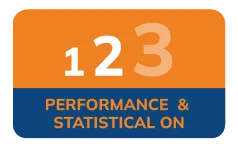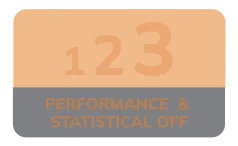_RGB.png)
Portfolio Investment Scheme (PIS) is a scheme of Reserve Bank of India defined in Schedule 3 of Foreign Exchange Management Act 2000. As per the scheme the NRIs and OCBs can purchase and sell shares and convertible debentures of Indian Companies on a recognised stock exchange by routing such purchase/sale transactions through their account with a Designated Bank Branch. (With effect from 29/11/2001 RBI has restricted OCBs from making fresh purchases. They can however continue their existing holdings or sell off the same).
The repatriation of the sale proceeds are allowed if the original purchase was made on repatriation basis and the sources of investment were from NRE/FCNR account or by means of remittance from abroad. If the original purchase was made from NRO a/c then the sale proceeds are not repatriable.
Yes. Investment can be made on repatriation as well as non-repatriation basis. However, the investor will have to open NRE account as well as NRO account with the Designated Bank. The sale proceeds of non-repatriable investment can be collected in NRO A/c only.
As per recent RBI guidelines, NRI should have a separate bank account exclusively for PIS purposes. Transactions relating to their personal banking as well as on account of transactions relating to shares acquired other than under PIS including IPOs should be routed in a separate bank account not linked to PIS. Account/s can be joint.
NRI can appoint only one Designated Bank for the purpose of routing the transactions under PIS.
The shares/convertible debentures acquired under IPO need not be routed through Designated Bank as this does not come under PIS. Such transactions, if routed through designated bank, should be done in a separate bank account not linked to PIS.
Yes. NRI can purchase upto a maximum of five percent of the paid up capital of a company and maximum of five percent of paid up value of each series of debentures. For the purpose of this ceiling investment in repatriable and non-repatriable will be clubbed. In addition to above NRIs collectively can hold upto a maximum of 10% of such holding or any higher percentage so permitted in respect of any particular company. Shares/debentures acquired through primary market are excluded for the purpose of above limits.
RBI notifies a list of companies where the ceiling limit has reached and where no fresh purchases can be made. This list is called watch list.
RBI also notifies a list called caution list notifying the names of companies whose NRI holdings has reached 2% below the ceiling limit. Any further purchases are allowed only by obtaining prior approval from RBI. Such approvals are issued by the RBI on first come first serve basis.
The Watch and Caution list is available on the RBI Website.
The sales proceeds can be deposited after deduction of the applicable tax. A C.A certificate in the specified format needs to be submitted before crediting the sales proceeds in the account.
The orders need not be placed through the Designated Bank. Further, the reporting of the transaction shall be done to the Designated Bank on the same day of transaction along with original contract note. One needs to ensure that the payment and receipt of funds in settlement of such trade has to be routed through the Designated Bank account only.
No. NRI cannot sell without taking delivery of the shares/convertible debentures purchased. Short selling is not permitted under PIS.
NRI will have to off load such portion of the holding, which is in excess of the prescribed limit.
Yes. The Designated Bank will issue approval on receipt of prescribed form.
A NRI needs to submit the transaction details (contract notes) to the Authorised Dealer on daily basis.
An NRI can send the contract notes to the following address;
ICICI Bank Limited,
Portfolio Investment Services Cell
215, Free Press House
Nariman Point Branch,
Mumbai, Maharashtra
India - 400 021
Yes, It is mandatory for a NRI to route all secondary market transactions through his PIS designated account i.e For all purchase / sell of stocks in secondary market only the PIS designated account should be debited / credited.
_RGB.png)
Copyright© 2024 . All rights Reserved.
Your cookie settings


These cookies are essential for you to browse the website and use its features. These cookies are essential for website to function and make sure you are able to browse seamlessly. They are used for faster loading and effective representation of information on it, enabling our site to function as intended.


These cookies are used to recognise you when you return to the site. This enables us to remember your preferences and also let us monitor how our website is performing. These cookies collect information, such as, number of visitors on the website, how visitors were directed to the website and the pages they have visited. The cookies collect information in a way that does not directly identify anyone. If you do not allow performance cookies then some or all areas of website may not function properly.


These cookies help us track your online activity and allow us to display content relevant to you and your interests, based on the way you have used our website previously. Also, the cookies help us to measure the effectiveness of our advertising both on and off ICICI Bank websites, and helps us to present products that may be of interest to you.
Confirm your settingsWe use cookies to improve and personalize your browsing experience. Click OK to continue else click Manage to change your preferences. By continuing to browse this website, you accept the use of cookies. read more